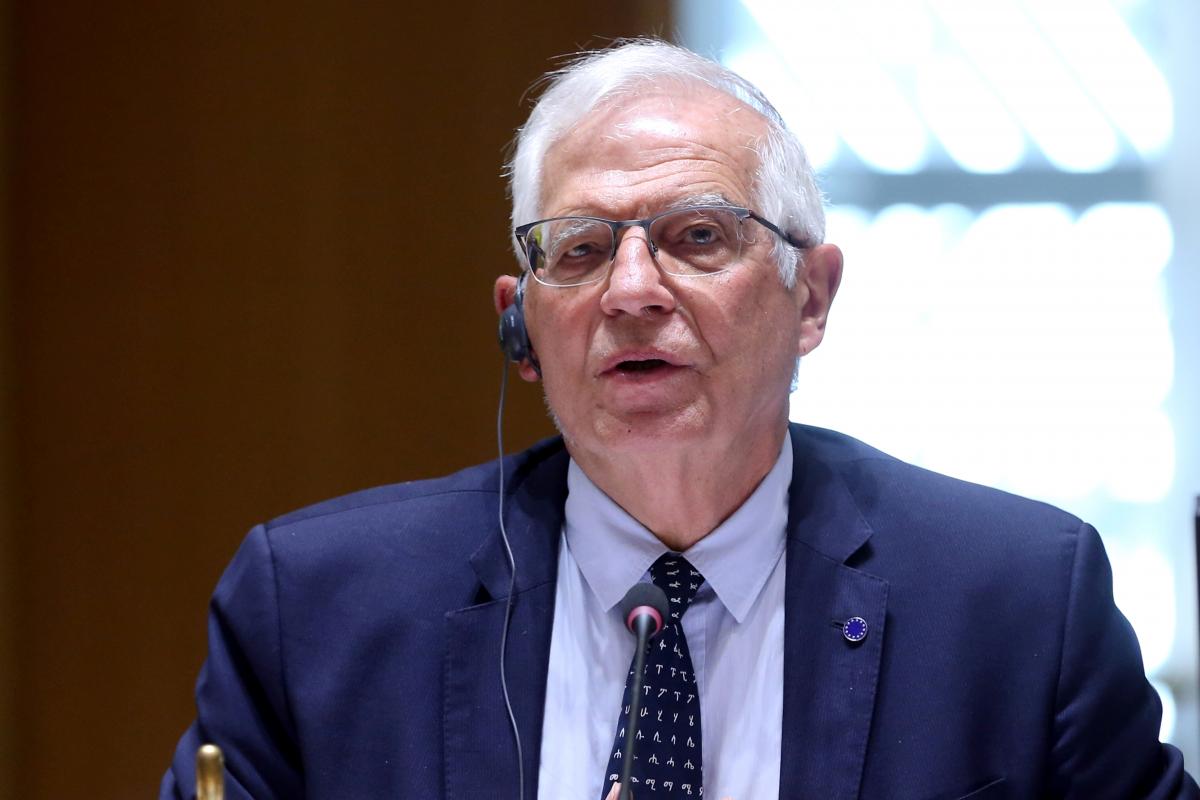
European Union's High Representative on Foreign Affairs and Security Policy Josep Borrell said the EU should be ready to consider options for response shall Russia cross "red lines" in relation to Ukraine or re-escalate.
The statement came as Borrell was addressing the European Parliament on Wednesday, April 28.
"Looking ahead, we need to continue to pass coordinated messages of a steadfast support to Ukraine. I will participate in the Summit on the Crimean Platform this August. We should also stand ready to look into options for additional response, should Russia re-escalate or cross red lines." Borrell said, stopping short of elaborating on the nature of those "red lines."
The recent build-up of Russian troops along the Ukrainian border and in the illegally annexed Crimea has "severely aggravated the security situation in the region."
"Russia’s actions are completely unacceptable and we firmly support the independence, sovereignty and territorial integrity of Ukraine within its internationally recognized borders," the top diplomat said.
For Russia, he noted, "the full implementation of the Minsk agreements is not a key condition, "for us it is, it is a key condition for a substantial improvement of our relations."
"Russia must cease its provocations and cooperate on a de-escalation of the tensions, instead of portraying itself as a neutral mediator," stressed Borrell
"That is what Russia is doing now, 'We do not have anything to do with the conflict in Ukraine', they are just there to try to mediate in external problems in which they do not intervene directly. This pretension must be debunked," the official underlined.
Russian troops along Ukraine borders, in occupied Crimea: Background
On March 30, 2021, Commander-in-Chief of the Armed Forces of Ukraine, Colonel-General Ruslan Khomchak said Russia had deployed 28 battalion tactical groups along the state border of Ukraine and in the temporarily occupied territories. It is also said to be planning to bring up to 25 battalion tactical groups under the guise of preparing for military drills. Such actions pose a threat to Ukraine's military security.
According to the Armed Forces of Ukraine, enemy troops are reinforcing their advanced units with reconnaissance teams and sniper pairs, involving Russian army instructors in personnel training. Russia-led forces' artillery units are reportedly on full alert in certain districts, including villages and towns in occupied Ukrainian territory.
The U.S. European Command raised its alert status to the highest level after fighting had resumed between Russia-led forces and Ukrainian troops in Donetsk region.
The U.S. Department of Defense said it was "aware of Russian troop movements" on Ukraine's borders and was concerned about recent escalations of Russian aggression in eastern Ukraine.
Ukrainian President Volodymyr Zelensky said Moscow was trying to put pressure on Kyiv by amassing its military forces along the Russian-Ukrainian border.
On April 8, Khomchak assured the situation was under control, and the Ukrainian military was ready to respond to the escalation both in the temporarily occupied territory of Luhansk and Donetsk regions and along the entire Ukrainian-Russian border.
On April 22, Russian Defense Minister Sergei Shoigu said his country would begin the withdrawal of troops, which had taken part in military exercises in occupied Crimea and near the borders of Ukraine, to their permanent bases in the Southern and Western Military Districts.
On April 26, Volodymyr Zelensky has said there is a persistent threat on Ukraine's borders.
Zelensky welcomed the partial troop withdrawal, describing the de-escalation as a "small victory" for Kyiv and its allies. It was, he said, a "step away from the emotional state, towards some pragmatic solution that we would expect here for the Donbas area

